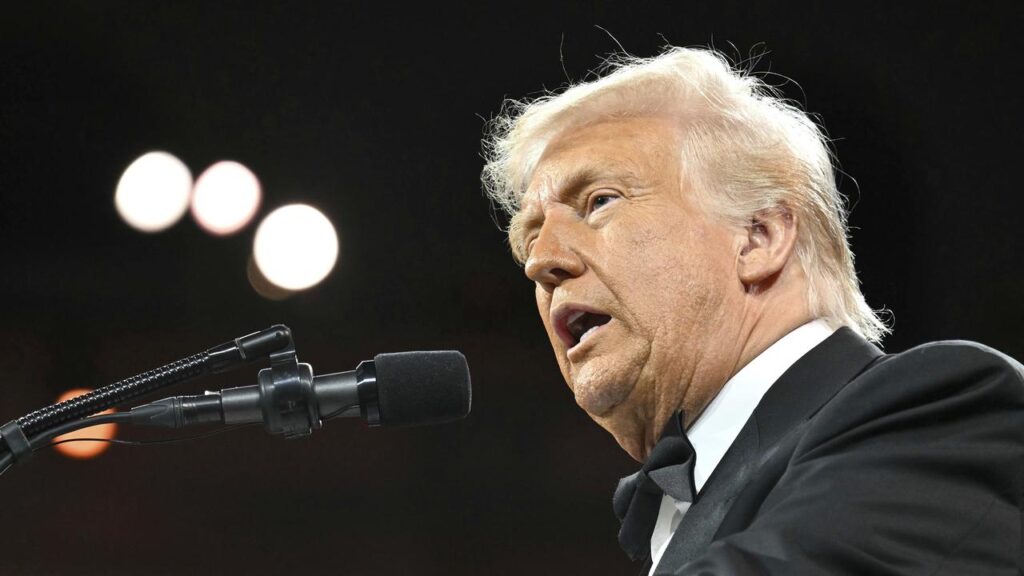China hits back with 84 per cent tariff on US goods
Trevor Hunnicutt and Philip Blenkinsop |

China has hit back in an escalating trade war with the United States after announcing it will raise tariffs on American goods to 84 per cent from Thursday.
Last week, China said it would levy 34 per cent tariffs on all US goods.
China’s announcement on Wednesday came as President Donald Trump’s 104 per cent tariffs took effect on Chinese exports.
“The US escalation of tariffs on China is a mistake on top of a mistake, which seriously infringes of China’s legitimate rights and interests and seriously undermines the rules-based multilateral trading system,” China’s finance ministry said in a statement.
The Chinese government declined to say whether it would negotiate with the White House, as many other countries have started doing.

US Treasury Secretary Scott Bessent described China’s move as a losing proposition.
“I think it’s unfortunate that the Chinese actually don’t want to come and negotiate, because they are the worst offenders in the international trading system,” he said in an interview with Fox Business Network.
Trump’s punishing tariffs have shaken a global trading order that has persisted for decades, raised fears of recession and driven worldwide stocks sharply downward.
The S&P 500 has shed nearly $US6 trillion ($A10 trillion) in value since Trump unveiled the tariffs a week ago, the deepest four-day loss since the benchmark’s creation in the 1950s. The index is now nearing a bear market, defined as 20 per cent below its most recent high.

US Treasuries were also caught up in the market turmoil and extended heavy losses on Wednesday in a sign investors are dumping even their safest assets and the dollar, a traditional safe-haven, was weaker against other major currencies.
Trump has offered investors mixed signals about whether the tariffs will remain in the long term, describing them as “permanent” but also boasting that they are pressuring other leaders to ask for negotiations.
European shares fell and US stock futures pointed to more pain ahead, following a grim session for most of Asia on Wednesday. Chinese stocks bucked the trend, however, as state support propped up the ailing market.

European Union nations are expected to approve later on Wednesday the bloc’s first countermeasures against Trump’s tariffs, joining China and Canada in retaliating.
The European Commission, which co-ordinates EU trade policy, has proposed extra duties, mostly of 25 per cent, on a range of US imports from motorcycles, poultry, fruit, wood, and clothing to dental floss, according to a document seen by Reuters.
They are to enter force in stages – on April 15, May 16 and December 1.
The tariffs are expected to cause a bigger hit to euro zone economic growth than initially estimated by the European Central Bank, although inflation may also be lower in the short term, four sources told Reuters.
The ECB stands ready to ensure the sound financing of the euro zone economy and financial stability, French ECB policymaker Francois Villeroy de Galhau said.

Trump nearly doubled duties on Chinese imports, which had been set at 54 per cent last week, in response to counter-tariffs from Beijing.
China’s currency has faced heavy downward pressure, with the offshore yuan at record lows, due to the tariffs, but sources told Reuters the central bank has asked major state-owned banks to reduce US dollar purchases and will not allow sharp yuan declines.
Central banks in New Zealand and India cut rates on Wednesday in what could presage a broader move by policymakers to try to cushion the tariff hit to their economies. The duties are another argument for cutting interest rates in Poland, central banker Ludwik Kotecki said.
Some economists have warned that US consumers are likely to bear the brunt of the trade war, facing higher prices on everything from sneakers to wine.
Nearly three-quarters of Americans expect the prices of everyday items to rise in the next six months, a new Reuters/Ipsos poll found.
The full effects of Wednesday’s tariffs may not be felt for some time, as any goods already in transit as of midnight will be exempt from the new levies as long as they arrive in the US by May 27.
with AP and DPA
Reuters